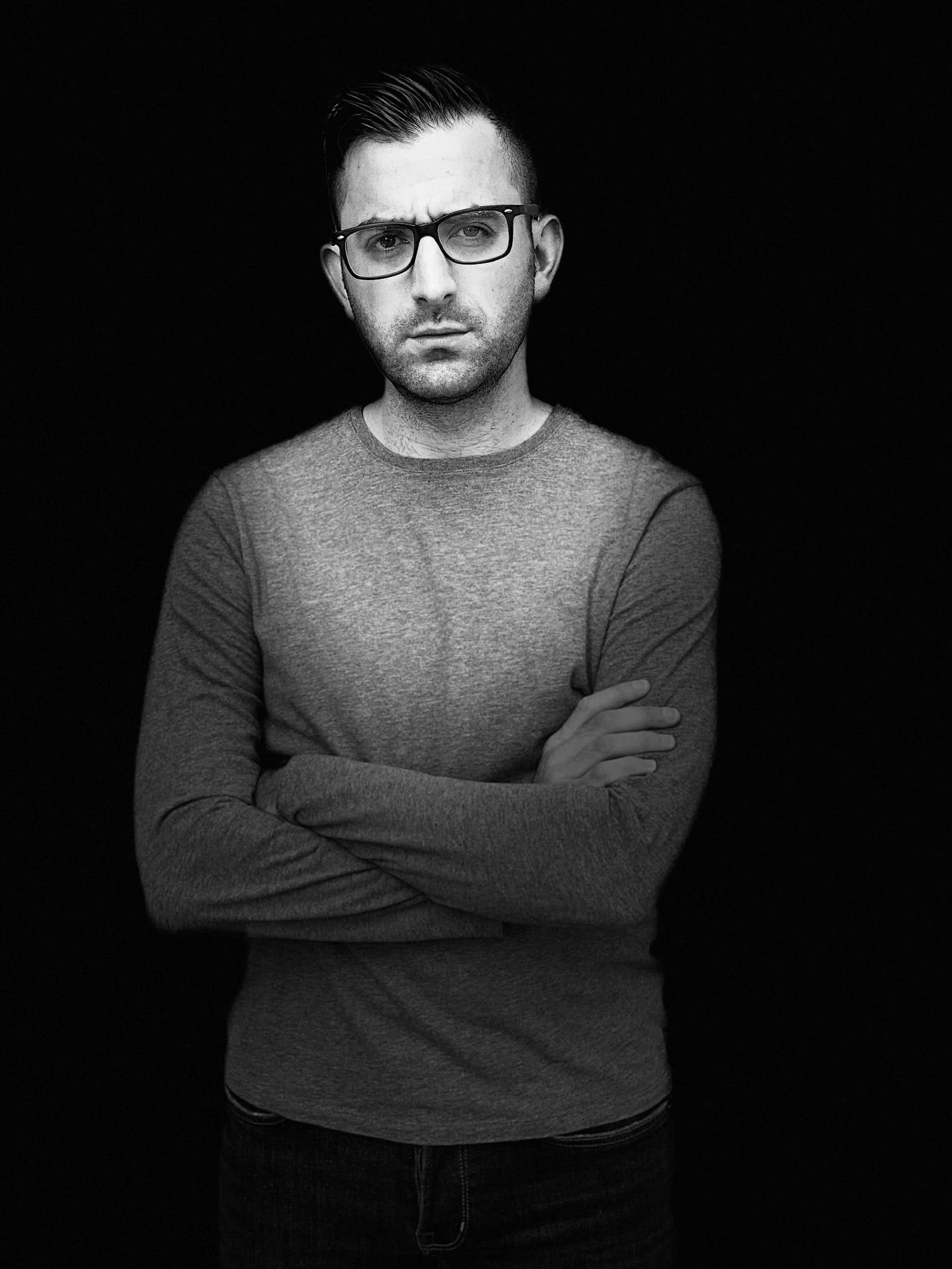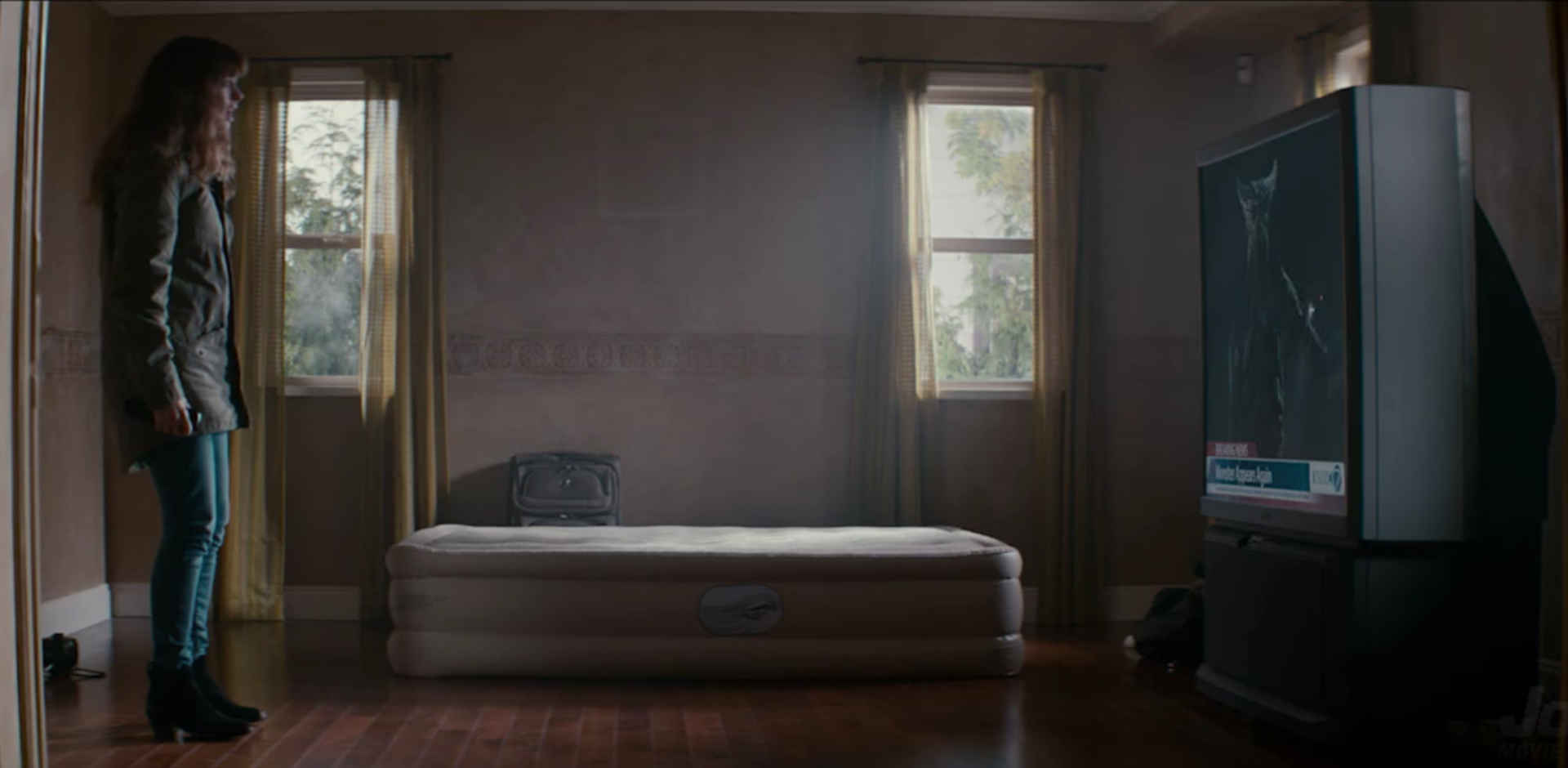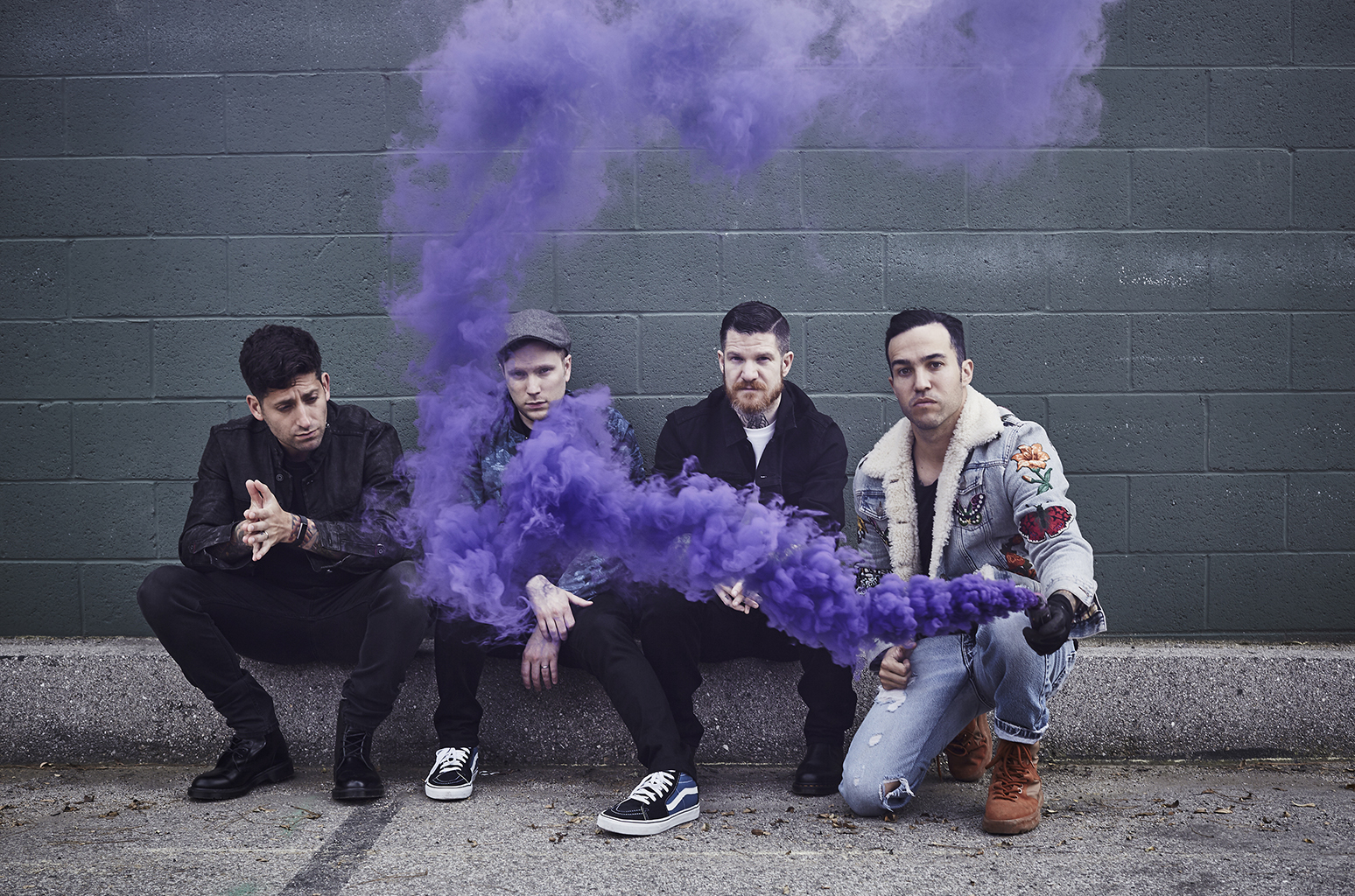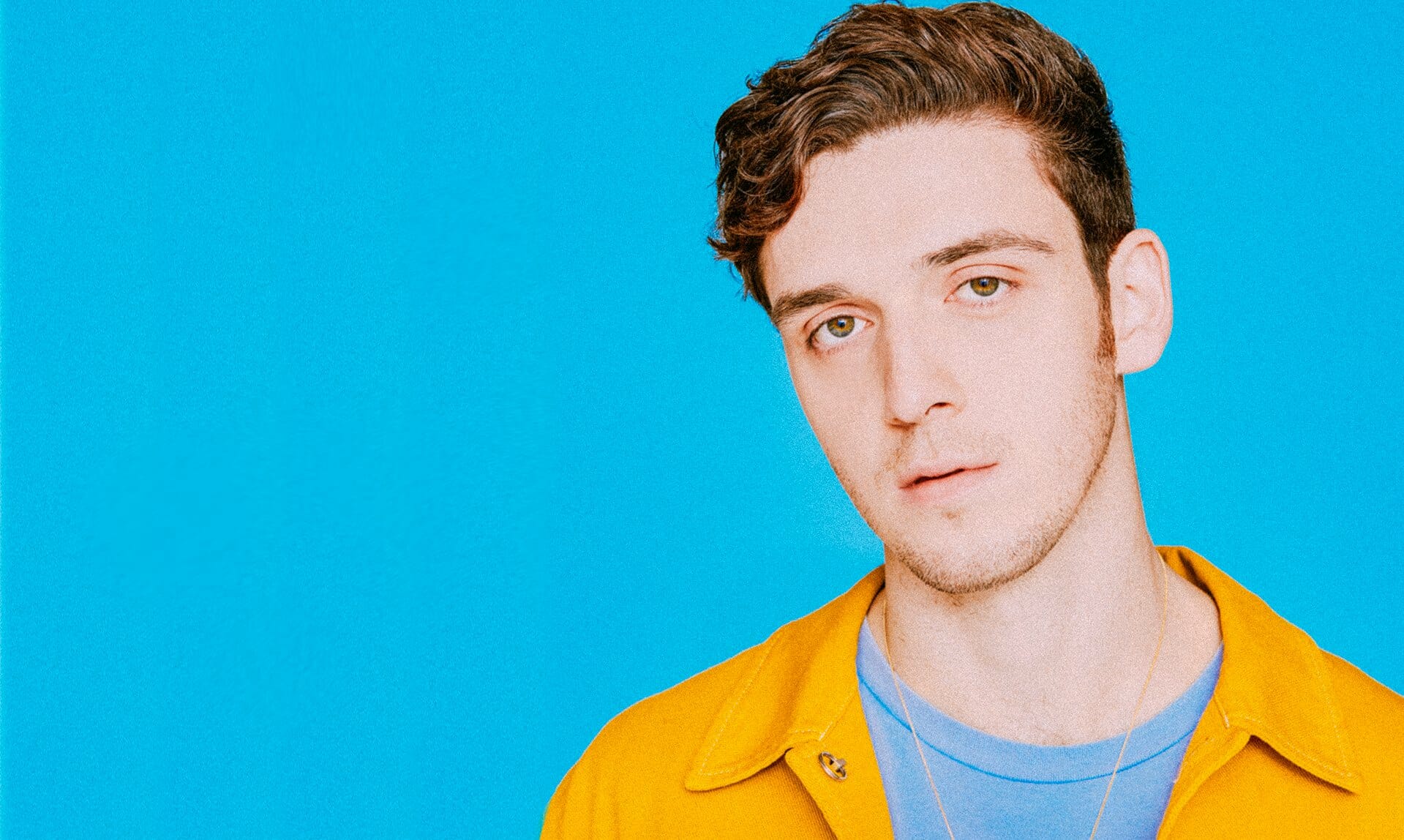Growing up on Long Island, Scott Waldman wanted to go to college in New York City. “But my father wanted me to go somewhere I guess less dirty… he also wanted me to go somewhere that had an actual campus life. And he was right.” The college search lead to attending the University of Michigan, which he calls “the quintessential American school” (he initially fell in love with their prestigious business school, though switched tracks after realizing courses in economics and accounting weren’t for him).
Waldman grew up playing in bands like We Are Groove Animals on Long Island and Blue Delusion in Ann Arbor. After college, he moved to Los Angeles to be in The City Drive, who were signed to Columbia Records. He taught music at a sleepaway camp for one last “hurrah” summer in college, and then said to himself, “why would I wanna commit to one more hurrah summer at 20? That’s pretty scary.” While New York is a hotbed for the music industry, Waldman wanted something different, and chose to move across the country. “LA doesn’t really have a vibrant music scene for bands,” he reflects, “but it has the industry – the majority of the albums you hear are recorded here, the majority of the label figureheads are here… and so that really appealed to me. And also, a lot of the music that I like comes from Southern California. It just made sense for me.” This September 3rd will mark sixteen years since Waldman – who now plays in Lido Beach – made the move.
Now, Waldman makes his living as a manager. His company, Waldman Management, works with both artists and producers, and while he enjoys being his own boss, he can’t do it all alone, and gives a shout-out to Emily Berke, a current college student who began working for him as an intern and is now on track to work for Waldman Management full-time upon graduation. Of course, Waldman still makes music and plays shows as Lido Beach, and in addition, every Wednesday, he heads to idobi’s studio to record his podcast, Waldman’s Words, which has featured guests who work in all sides of the music industry.
Below, Waldman dives into how he got started in artist management, working with AFI’s Hunter Burgan as a producer, what artists can do to make a manager’s job easier, and more.
SUBSTREAM: What drew you to artist management?
Scott Waldman: It was an accident.
SUBSTREAM: Really?
SW: Yeah, it was a hundred percent an accident. I was in a few bands – I was in The City Drive, Lido Beach, Green Light Theory – and when I was in The City Drive, I would come back from tour and I would teach guitar lessons.
One of my former guitar students hit me up years later, and she was like, “Hey Scott, I’m playing shows and I would love you to come to one” and I was like “I’m so proud of you – you’re playing shows.” She’s like, “I’d like some advice” and I said, “Well, just so you know, you can’t un-hear what I say and I’m not gonna blow smoke up your ass; I’m gonna give you the real deal,” and she’s like, “No, no, you’re a New Yorker, so I expect this from you” – so that’s another difference between LA and New York.
I went to her show, I gave her extensive notes – like really, really well-thought-out notes – she took these notes the following show, and then the show after that was packed. I was like, “you know, what I’m doing with you is kind of like a managerial role” – and in the back of my mind I was thinking – every band I’ve been in, I was always that guy.
SUBSTREAM: The business guy.
SW: Yeah, you know – the guy who does the hustling. If a band doesn’t have at least one member who is proactive, it’s gonna fail. I gave her advice and I became her manager, and then – no joke – within like a week, I quit. Without going into it, she did some foolish things and she went against my advice and I was like, “you know what – this is not for me.”
I started managing a bunch of other people. I was lucky; I had a little bit of a pedigree because I was in a band that was signed to a major label and I had a lot of experience, so I was able to get clients quite quickly. Shortly after I was working at a law firm as a legal assistant, believe it or not – I quit the firm in April of 2015 and I’ve been full-time ever since.
SUBSTREAM: Have you ever thought of signing on to work with or partner with a management company?
SW: Yes. I’ve always thought it – ’cause I’ve had no training, I’ve had no guidance, it’s all been fake it till you make it, or just grind and learn. When I first started, I was really, really interested in doing that; now, if the right person came along, I would definitely, definitely consider it – but it doesn’t really make sense right now because I’m my own boss. I wake up when I want, I do what I want, and I manage my own clients, and if I were to do that right now, I would have to inherit or do other work for other people – so it’s crazy, it’s unstable, but it’s working right now. Maybe talk to me in a year.
SUBSTREAM: You recently signed on Hunter Burgan from AFI as a producer; how did that connection come about? What’s different about managing a producer versus an artist?
SW: I’ve known Hunter for the better part of a decade – I met him last decade. My old band The City Drive actually played Warped Tour in ’06 and AFI did too, but we didn’t know each other that way – but we became friendly, I wouldn’t say that we were friends, friends yet.
When I became a producer manager, we actually met up and he did some work with one of my clients… he likes me, I like him, we got closer – and he asked me, which honestly was one of the most flattering things ever because I’ve been a fan of AFI for the better part of two decades. He’s done some incredible stuff: AFI had a number one Billboard record.
When your band [needs] a producer and you reach out and Hunter is into it – because he’s picky, as he should be – that’s when I come in and I would do my best to negotiate, schedule, and work out all the logistics. So the creatives do the creative stuff and I do the suit stuff. Managing producers, I will admit, is not as thrilling as taking a band from zero to a record deal, but it’s far more stable – far more stable. I ventured into that, I’d say about a year and a half after I started managing artists. It was never a goal to manage producers, but I would say it’s probably what I’m best known for.
SUBSTREAM: At what point in their career do you think it makes sense for a band to hire a manager? Does it make sense for a band to have a manager from day one?
SW: It never makes sense for a band to try to find one; it makes more sense for a manager to come to them. Now, in regards to when it makes sense, it’s totally different. Some bands are completely self-contained and don’t think they need one – I personally think it’s kind of like having a therapist – yeah, your friends can help you; yeah, you guys can help each other; but it’s good to have someone on the outside. Some bands are lucky, and the right person hears them at the genesis stage; sometimes bands are at the point where they’re selling out The Stone Pony and then the management comes. It’s completely case-dependent based on person – but I would like to think that I provide value to every single one of my clients.
SUBSTREAM: What can artists do to make a manager’s job easier?
SW: I could write a book on this. They could be responsive, they could be grateful, they could… do the work. If a manager is getting 15% or 20%, you should earn your 80%, you should earn your 85%, you should constantly be writing. Some bands make the biggest mistake when they sign to a label, they think, “Oh shit, I’m on a label, the work is done” and it’s like “no – the work is harder now. Now you’re at the bottom of a pool.”
The City Drive, we were on Columbia. Do you know who was a big priority for Columbia at the time? Beyonce. For us to stick out to the suits behind the scenes, we would have to create an impact on our own. Artists need to find ways to get noticed, get their numbers up on their socials, get butts in the seats, and get some actual sales. You have to be a machine on your own – but like I said earlier, some bands are extremely lucky that before they’re a machine, they find someone; but managers, for the most part, work on percentage, so they only earn when you earn, so I think that you should be earning something before you get a manager.
SUBSTREAM: You do a lot – you’re a manager, you have a radio show / podcast, and you’re still doing some music through Lido Beach. How do you get so much done – how do you stay on top of every single thing, hopefully without going crazy?
SW: I already slipped off the deep end, so that ship has sailed [laughs]. But in regards to what I do – Lido Beach is really not a big time commitment. Lido Beach is mostly me, with the exception of going in with producers and I have musicians on both coasts that help me out; when I went to Nashville, I did an acoustic show. Lido Beach is an extremely minimal commitment. I released a song [“You Fell Hard”] last year for the first time in a minute – just because I was working with a lot of artists and I had some creative juices – shout-out to Curtis Douglas, who, you know, is a god – and then I actually recorded a few other songs late last year, one of which that I was super super proud of, is the cover of the Vanessa Williams song, “Save The Best For Last” and we’re releasing that on February 22nd. I’m 37, I’m married, I do not want to tour full-time, I could do things here and there – but I really don’t spend too much time on Lido Beach – I’m playing an acoustic show for fun; it’s for fun. It’s not what The City Drive was.
SUBSTREAM: Right, The City Drive was your career.
SW: That was my career, definitely.
Now idobi, I pre-record weeks out. I spend more time driving to idobi than doing idobi. I schedule way, way out, and most times I go there, I do one show, so I’m there for about an hour -sometimes I do two – and that’s it. That’s on Wednesday. It’s really not that much of a time commitment doing Lido and doing idobi – [that’s] maximum a few hours a week combined. The management is my main gig – I’d say that’s like, I’d say, 99% of my day.
SUBSTREAM: When you look at your career and what you’ve done as a manager as well as being a musician and having the radio show / podcast, are there any career bucket list items you’d like to mention?
SW: It’s 2019, so I’ve been doing artist management for almost four full years now. Bucket-list – I would like it if a producer / songwriter or a producer was affiliated with an album, song, EP, or project that really had a big impact. Something that is culturally significant, and if sales come out of it too, great – I haven’t had any mega, mega Billboard success. Granted Billboard wrote about my thing with Hunter which was really cool – but I haven’t had anything like that.
As far as the radio show goes, I would love it if my listener base quadrupled. I mean I’d be down to be a Ryan Seacrest, that’d be awesome. I would love to be involved in television in some way. In regards to Lido Beach, I have some fans that have tattoos of my lyrics and an actual tattoo of my signature – it’s insane that someone cares enough about my words or my songs or me to have it permanently decorated on them – it’s just stupid. Not stupid in a bad way, just crazy. So as long as my stuff really really makes people happy, that’s there.
MH: Looking at what you have planned for this spring and summer, is there anything people should keep an eye out for, either with you and your clients, or anything else?
SW: I will be announcing a new client and it’s super top-secret – there’s not a trace of their material online and that’s what I’m extremely excited about, cuz [my co-manager and I,] we’ve been in the trenches with them – since before even recorded music, and they signed on with us.
I’m really busy with Waldman’s Words, which is good – September 18 is my latest confirmation for Waldman’s Words. That’s eight months from now. I guess with that, just keep getting better and better and better.
In regards to Lido, I’m releasing the very first cover I ever recorded – “Save The Best For Last”, Vanessa Williams – shout-out to Dan Balistocky – that comes out on February 22nd. I’m playing an acoustic show with my buddy’s band 5606 in San Jose a few days before my birthday, and that is on March 2nd – so that’s that.
Keep up with Scott Waldman, Waldman Management, and Waldman’s Words on Twitter. Waldman’s Words airs at 5pm PT / 8pm ET every Tuesday on idobi.













